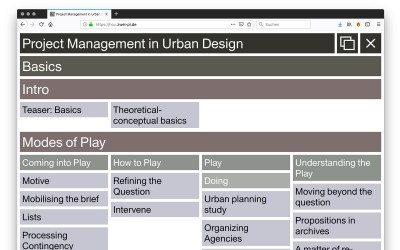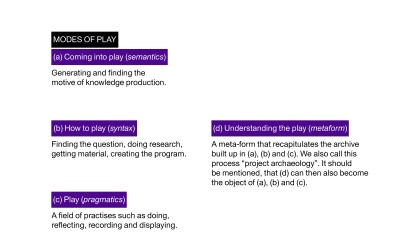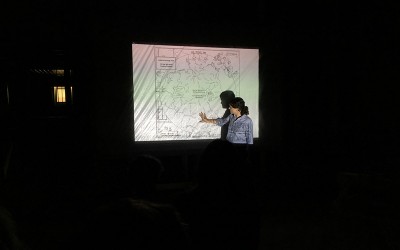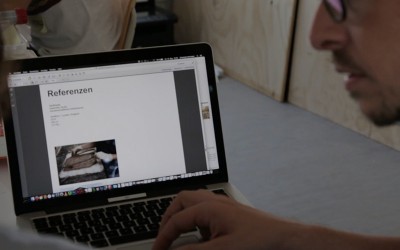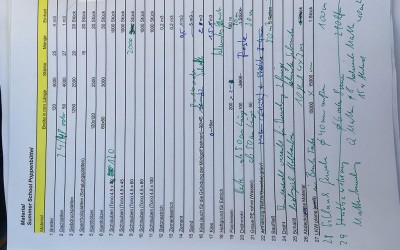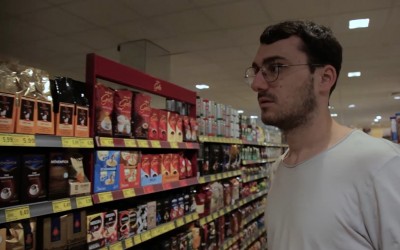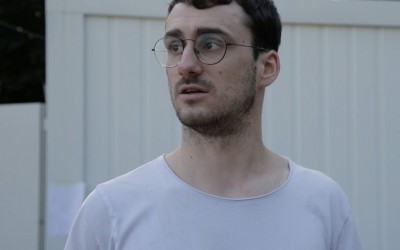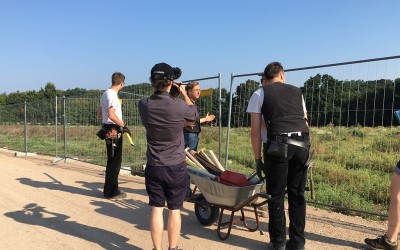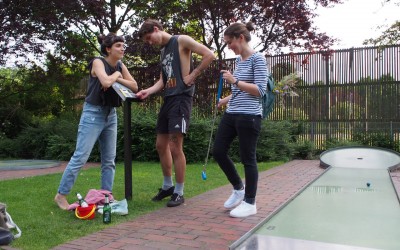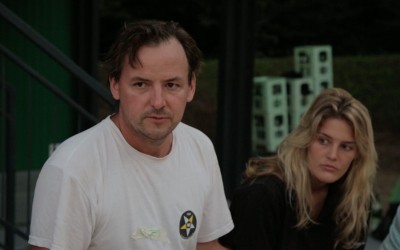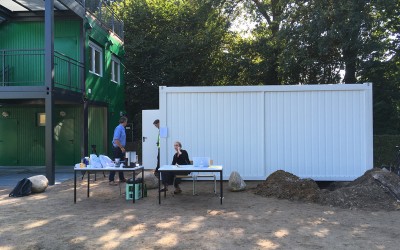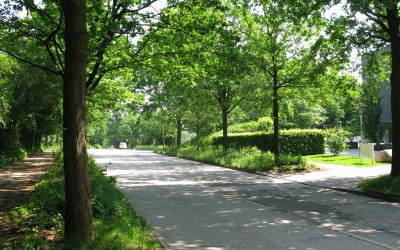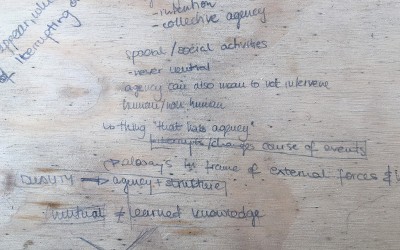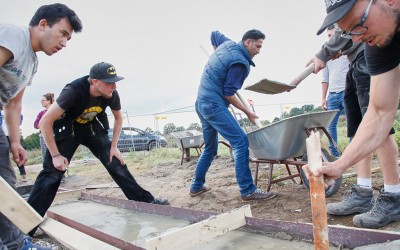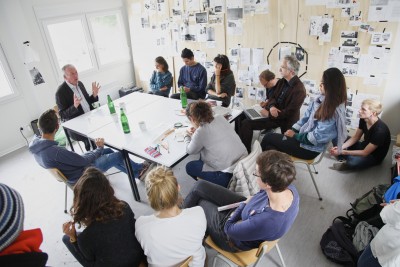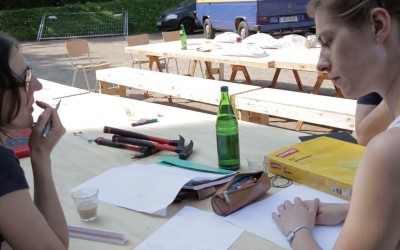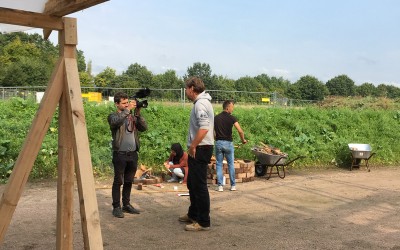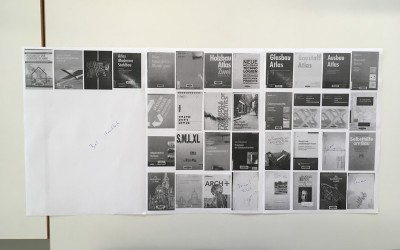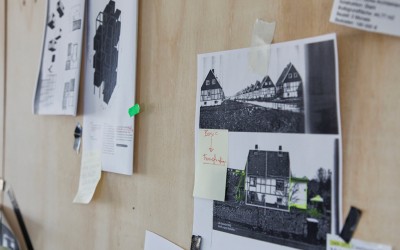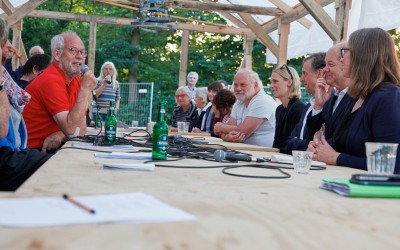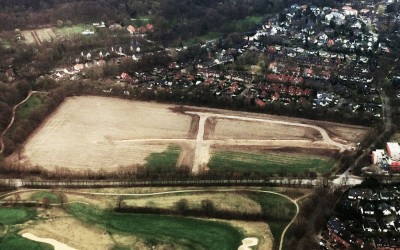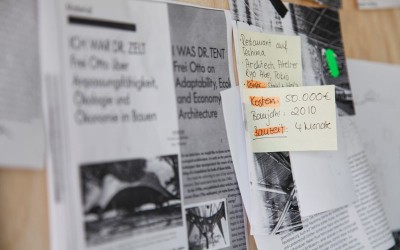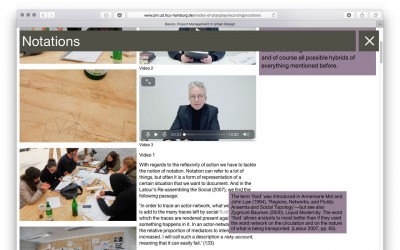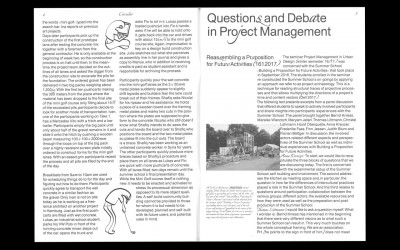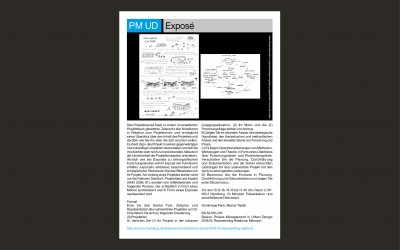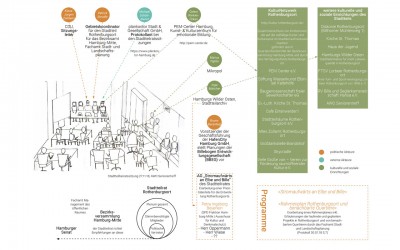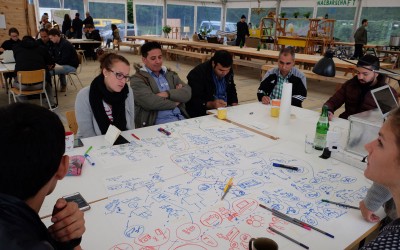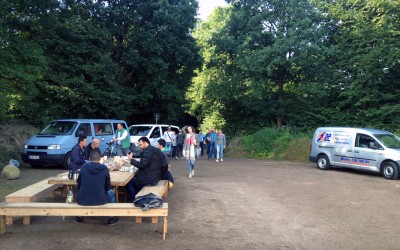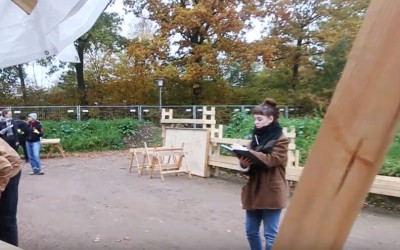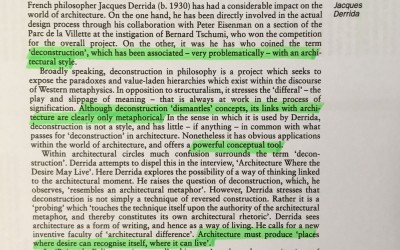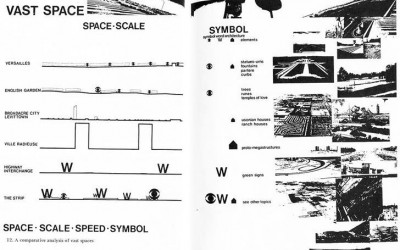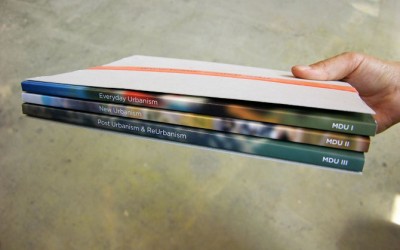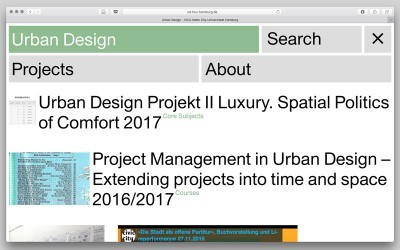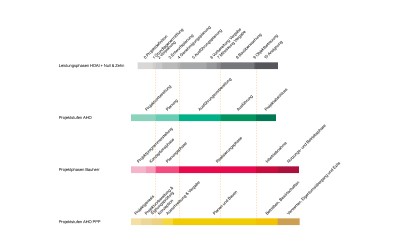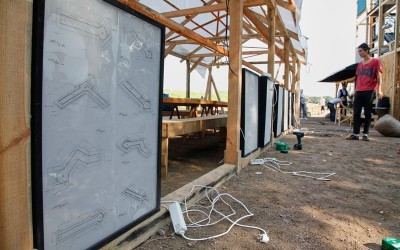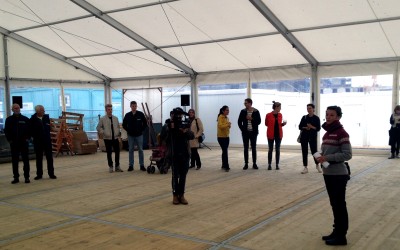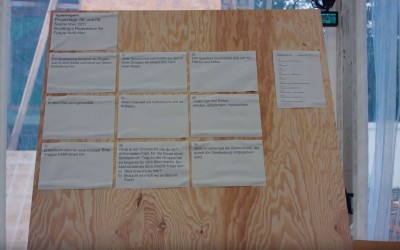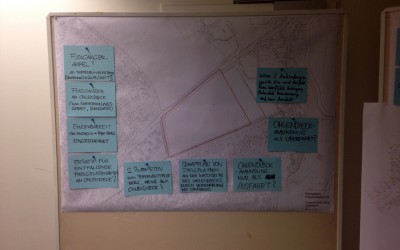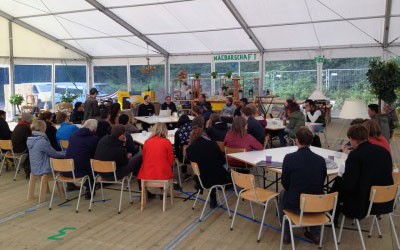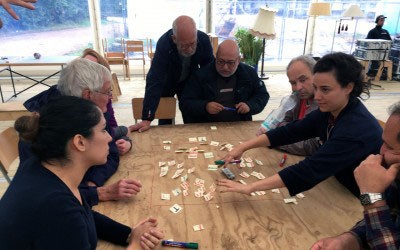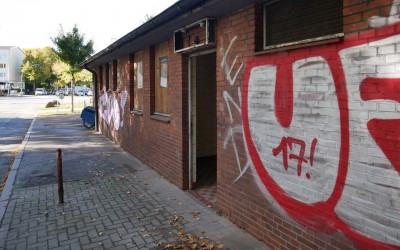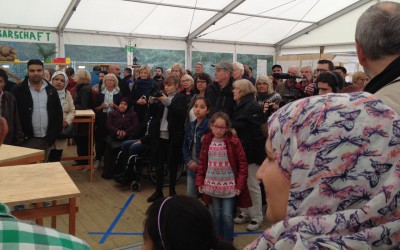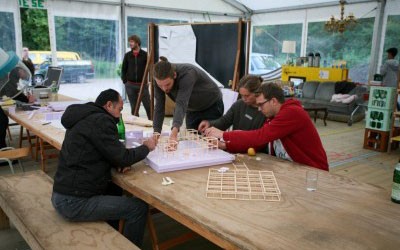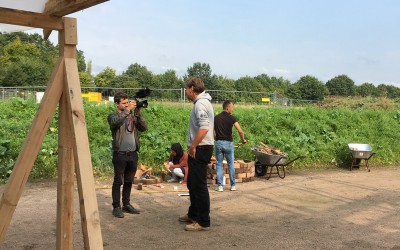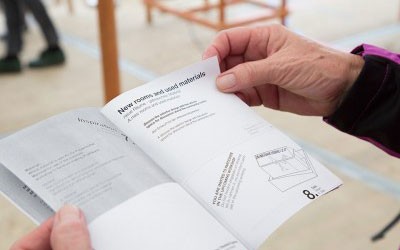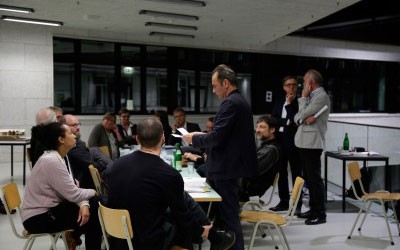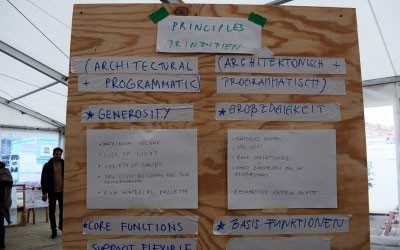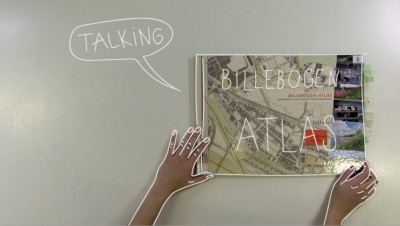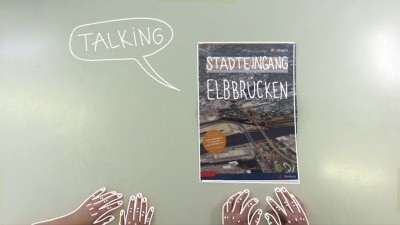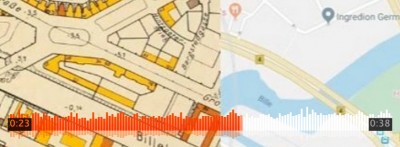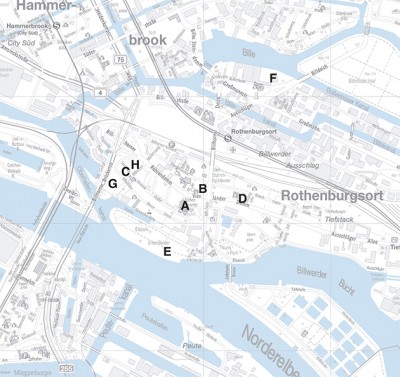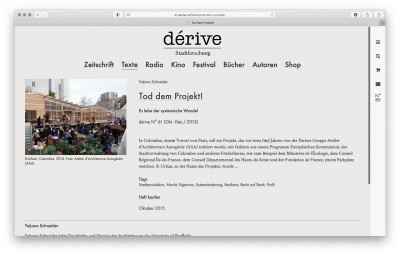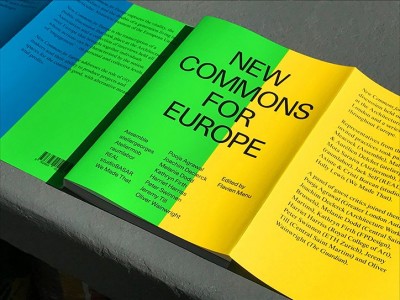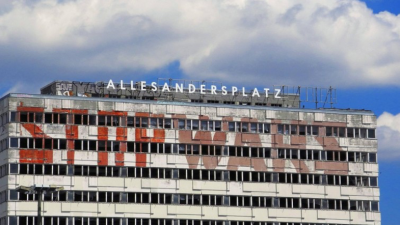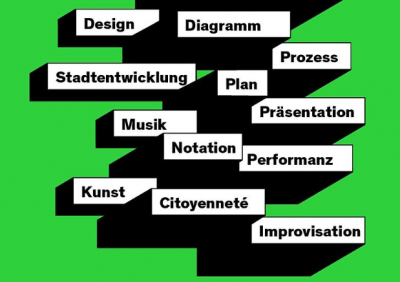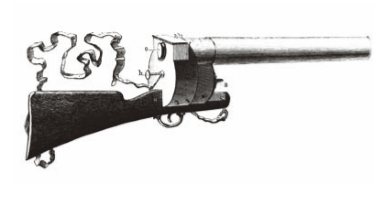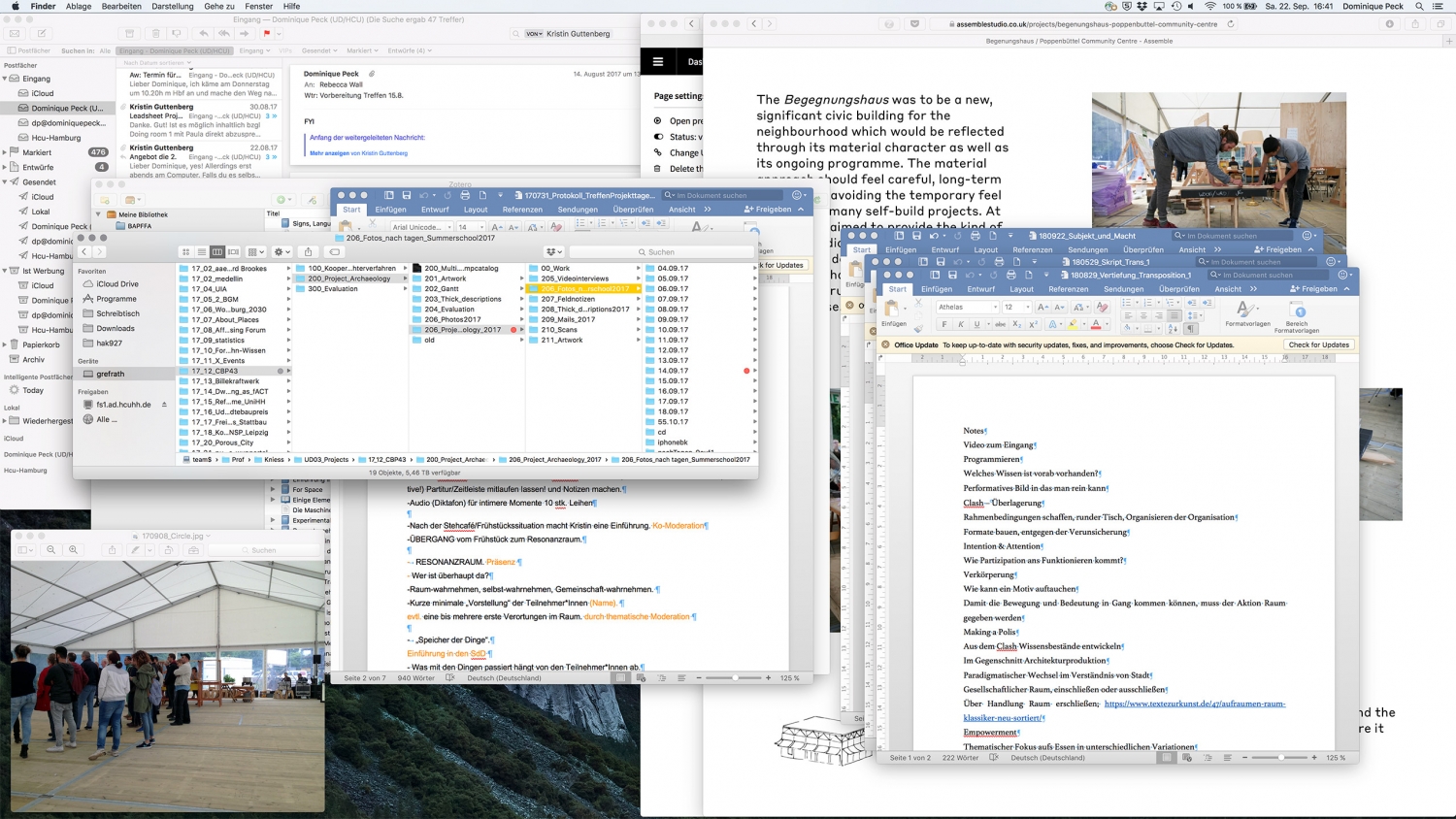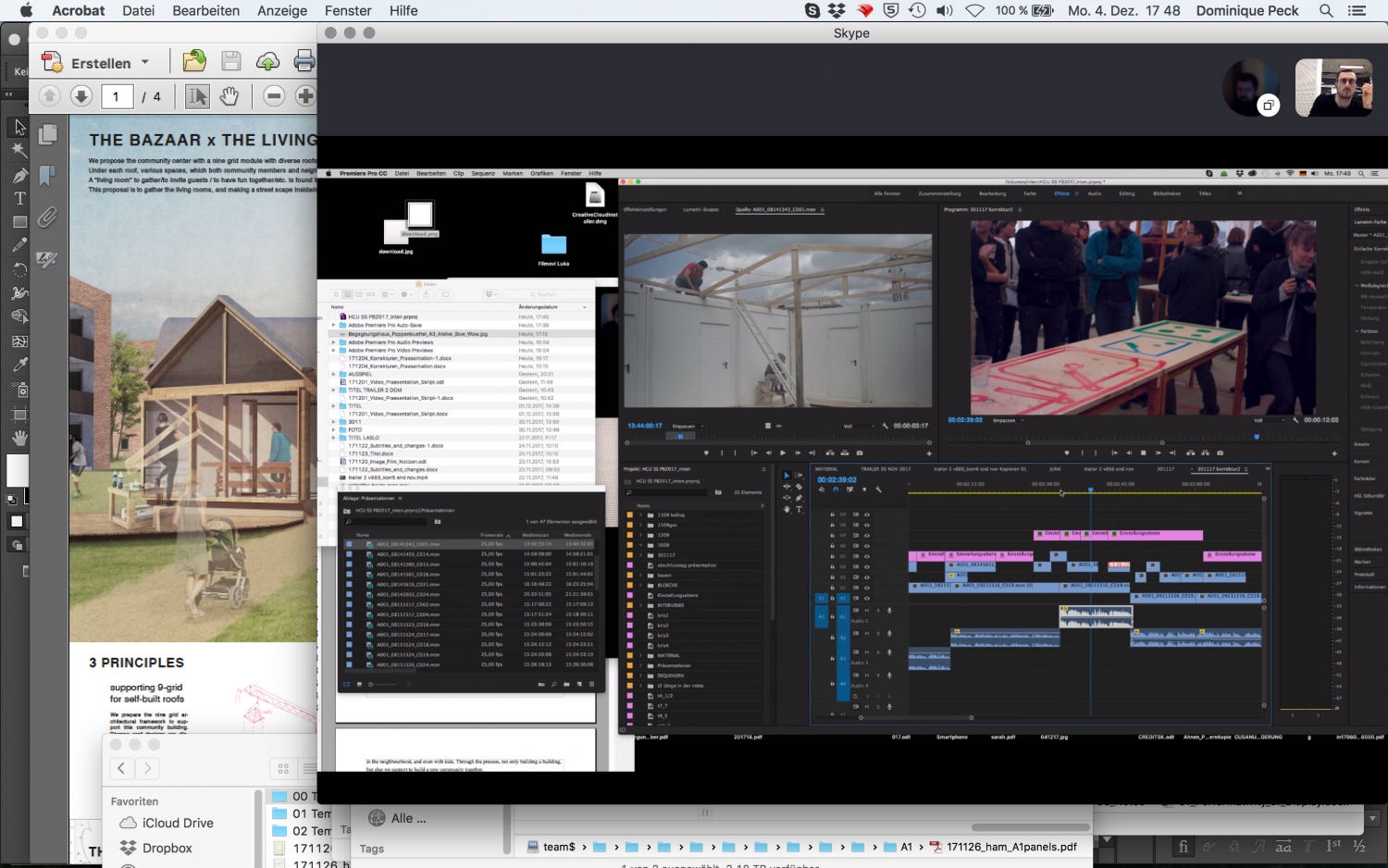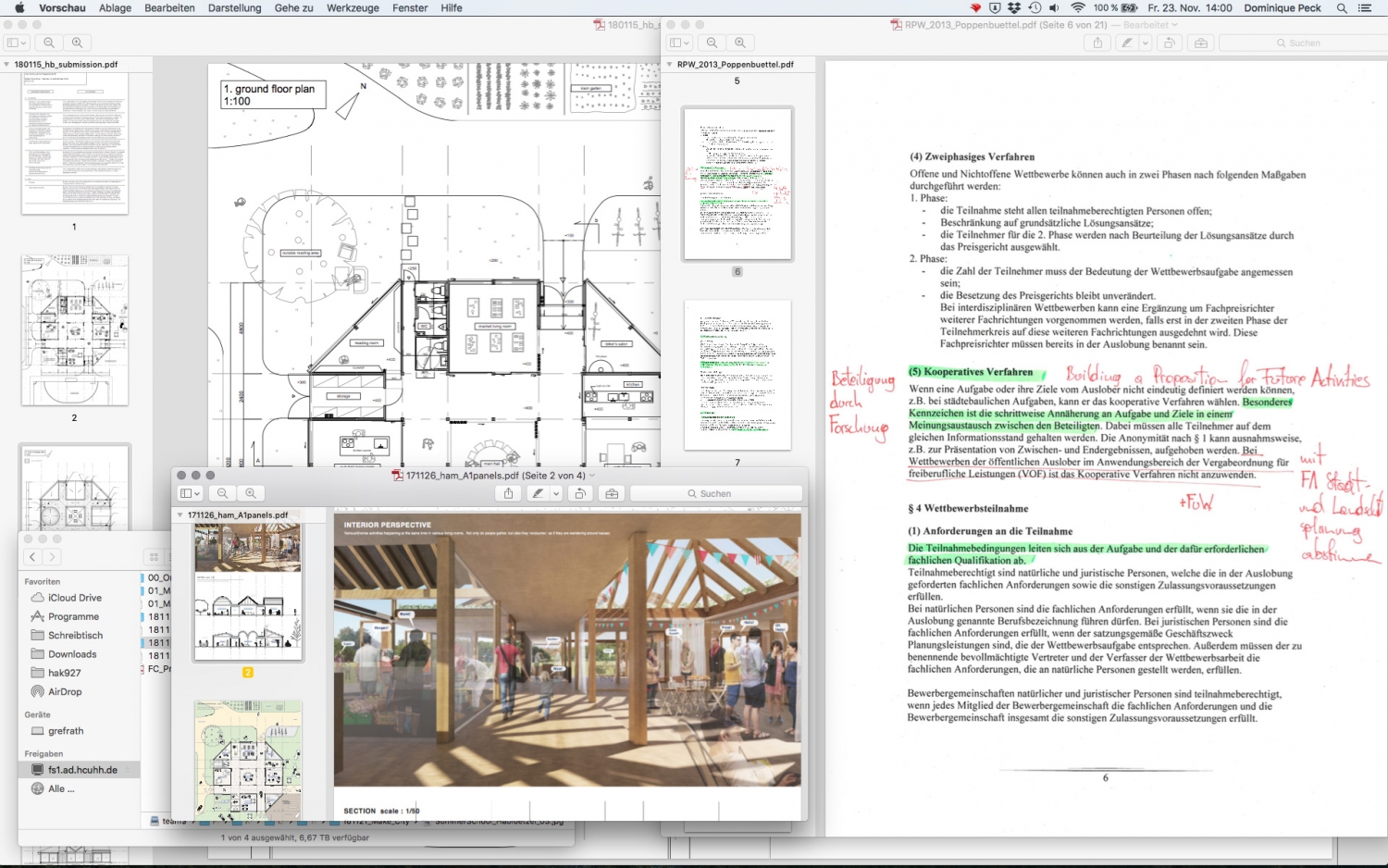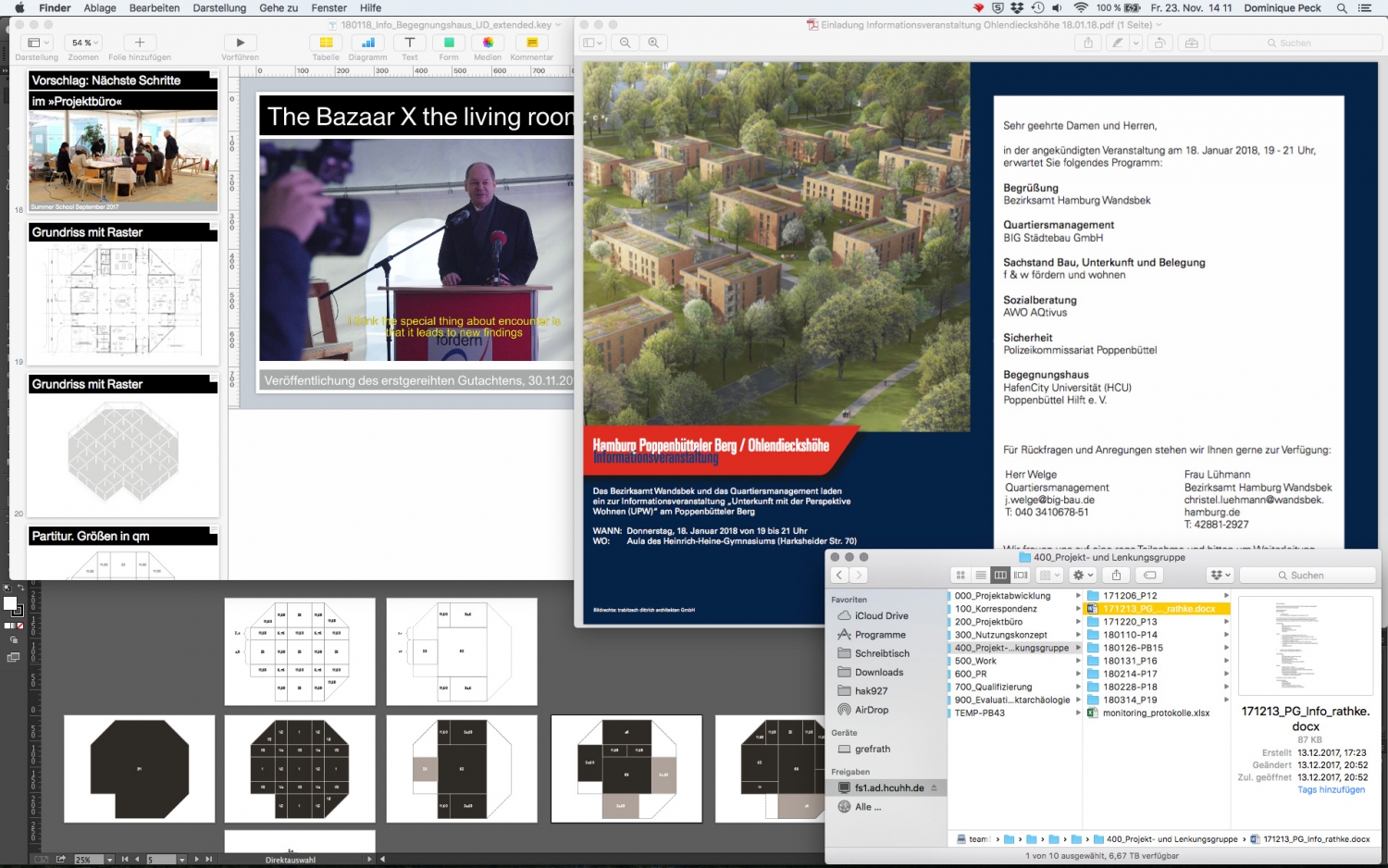Members of the civil society initiative help guide through the neighbourhood and show their self-built community building, before all participants of the planning competition receive helmets to take part in a guided tour through the Ohlendieckshöhe construction project in the Accommodation with Perspective Dwelling programme. Back in the big tent, the prepared lunch is served before the members of the process management of the planning competition present the task. At the end of the first day, the approximately 60 participants are divided into five mixed groups along their pre-qualifications and the project leaders are drawn by lots. The project leaders are all member of architecture offices that have been selected and invited by the project and steering group of the project Begegnungshaus Poppenbüttel and who have all been involved in self-construction and participation procedures. On the second of a total of seven days, work begins in the project offices. The project offices are a form coproduction that provides different people and working groups with an infrastructure, starting with such basic things as electricity, model building materials and breakfast, lunches and dinners for the participants and partly also their relatives, friends and families. Similarly, the organisation of the financial and legal framework is also at stake, as was demonstrated by the example of the participation confirmations, the additional expense allowances for voluntary work and internship certificates.
Each project office works on the task in the planning competition according to its own design approaches. The participants get to know each other through narratives, draw a network of existing capacities, go directly into the elaboration of possible design approaches on different scales in model making (1:200 to 1:1), draw on sketch paper or the PC. Every evening a project office is responsible for dinner and a presentation of the work. Within a week there are kitchens from Switzerland, Japan, the Middle East, Belgium and Germany; the ingredients are bought in the vicinity of the project area and prepared and served in the large tent in the kitchen from the project days.
On the final day of the summer school (project days and cooperative review process), all project offices set up their displays for the intermediate colloquium, while photographers from the daily press get an idea of the situation. The process management explains the experimental arrangement of the intermediate colloquium. In contrast to the usual forms of planning competitions, the cooperative review process allows all participants to exchange ideas and insights into each other's contributions. Different competencies and procedures become visible in this way, which invites the leaders of the project offices to signal their willingness to contribute to the possible realisation of a project. Instead of five competing entries, the project office discuss how they could work on one joint competition entry. The participants of the project offices let the visitors of the summer festival of Poppenbüttel hilft e.V. see their designs for the Poppenbüttel meeting house.
